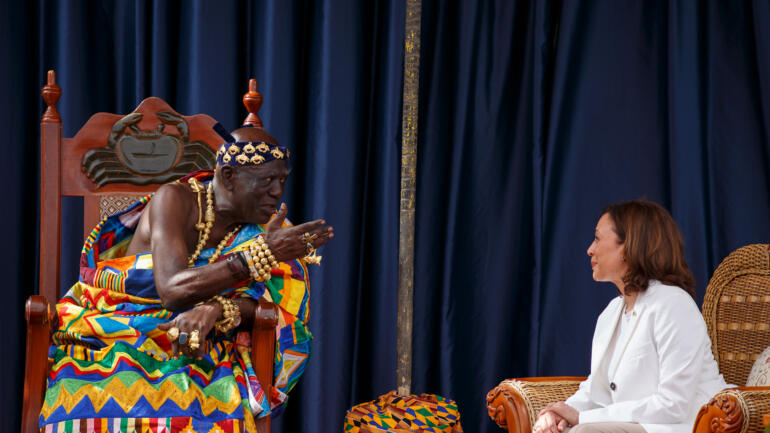Top U.S. officials in the Biden administration have made high-level visits to Africa in the past three months in an attempt to increase U.S. engagement with the continent.
What’s behind the trips? Could global power competition be playing a role, and what are Africa’s development priorities?
In 2023, five U.S. officials have visited 11 African nations so far. President Joe Biden is expected to travel there later in the year in a move to expand economic opportunities.
“I’ve never seen this kind of charm offensive in the past. I think even when China was becoming quite an important strategic actor, deepening its footprint in Africa around the early 2000, and of course, after FOCAC. And then, of course, the success of FOCAC summits and meetings, ministerial meetings. I think you never saw this reaction to China or to Africa by Washington. Even under the Trump presidency, Africa wasn’t given the kind of elevated status,” Foreign Policy Analyst, Sanusha Naidu told CGTN.
Many of the visits by U.S. officials have focused on China’s role in Africa.
China has become Africa’s largest bilateral trade partner. Many infrastructure projects on the African continent are financed by China’s Belt and Road Initiative (BRI).
China’s BRI is now in a new phase to use the infrastructure it’s helping build to boost industrial development.
Can great powers take a one-size-fits-all approach to Africa?
“The continent is very heterogeneous, and so being this kind of diversified continent with various economies of scale in terms of countries, various political dynamics, various cultures, various diversities in terms of population, all of these things tend to basically contradict the idea that you’re going to have one single approach to the U.S. and one single approach to China,” added Naidu.
Several African nations have rare-earth minerals, which are crucial to the global green revolution. Cobalt, nickel and copper are used in electric vehicles and renewable energy technology.
China plays a dominant role in the supply chain and refinement of those critical minerals.
African governments are also trying to secure the best deals.
“I think Africa is also going through that transformative structural change. But there has to be a structural transformation of the global arena because the system is irreversibly imploding. And I don’t think we can go back to a period where external powers are going to plunge and plunder Africa. I think people in Africa, the younger generation, are becoming much more aware, but much more aggressive in pushing back both internally and externally,” said Naidu.
The question remains will countries in Africa be forced to choose a side between China and the U.S.?
For more, check out our exclusive content on CGTN Now and subscribe to our weekly newsletter, The China Report.
 CGTN America
CGTN America
